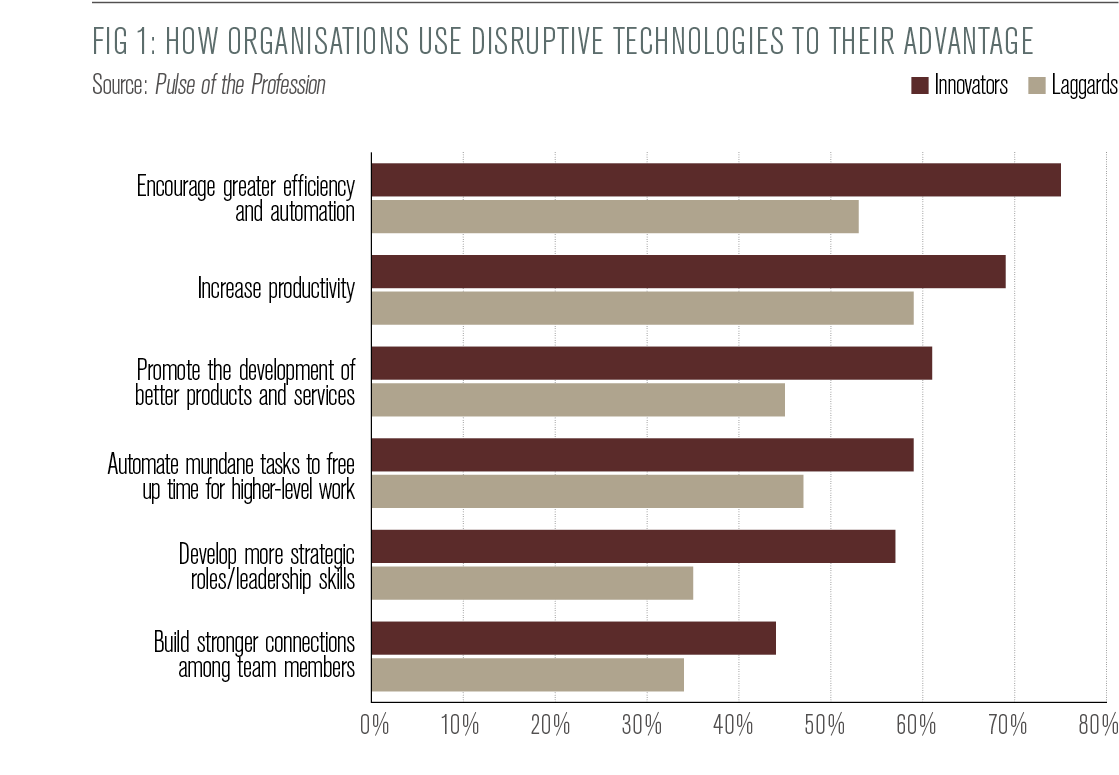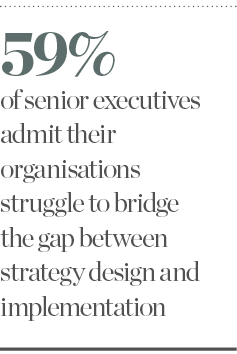
Author: Cindy W Anderson, Vice President of Brand Management, Project Management Institute
Top 5
Disruptive technologies are reshaping industries and markets in unprecedented ways and at extraordinary speeds. The organisations that succeed in this environment are those that can adapt rapidly to new opportunities and challenges. Rather than only seeing threats, they recognise that disruptive technologies can, in fact, give them a competitive advantage.
We are clearly in a period of profound change for the workplace – and all strategic change in an organisation is delivered through projects and programmes. Project management, therefore, holds enormous value in helping organisations to leverage emerging technologies.
Artificial intelligence, for example, holds the promise of automating more routine aspects of work, such as tasks related to scheduling. This allows project managers more capacity to play greater strategic roles in their organisations.
Digital-age skills
Recent research clearly indicates that organisations can do more to strengthen their project management capabilities. In fact, according to the Project Management Institute’s (PMI’s) 2018 Pulse of the Profession global survey, organisations waste an average of €99m for every €1bn invested in projects.
Organisations with cultures that embrace change are better positioned to succeed in a fast-paced and disruptive business environment
Too much money is being wasted on poor project performance for a few key reasons. We have found that organisations often don’t bridge the gap between strategy design and delivery. We have also noted that many executives fail to recognise that strategy is delivered through projects. As such, the importance of project management as the driver of an organisation’s strategy is not fully recognised in most cases.
Further, a recent Brightline Initiative study, conducted by the Economist Intelligence Unit, showed that 59 percent of senior executives admitted their organisations struggle to bridge the strategy-implementation gap. As a result, only one in 10 organisations successfully reach all of their strategic goals. So, what can organisations do to more effectively execute their ideas and take advantage of emerging technologies?
Our research points to a few recommendations. PMI recently sought to understand how forward-thinking organisations successfully leverage disruptive technologies and manage their impact. In our most recent report, The Project Manager of the Future: Developing Digital-Age Project Management Skills to Thrive in Disruptive Times, we discovered that the successful management of disruptive technologies requires a ‘digital skill set’.
But what kinds of skills make a significant difference? Innovative organisations – those that rate themselves as effective in managing the impact of disruptive technologies – identified that critical digital-age skills have risen to the top of the list for prospective project leaders. Some of these skills may not be familiar to professionals of an earlier era, such as the use of data science, which includes data management, analytics and big data.
Then there is having an innovative mindset and the ability to make data-driven decisions. A sound understanding of legal and regulatory compliance is also important, as well as a knowledge of security and privacy. And last, but certainly not least, having collaborative leadership skills is essential.
Innovative organisations understand that professionals must continually develop their skills as technology evolves. This is why such organisations also report that they have been investing in formal processes to help their project management talent develop further competencies in these key areas (see Fig 1).

Nurturing agility
Organisations with cultures that embrace change are better positioned to succeed in a fast-paced and disruptive business environment. They move quickly, decisively and effectively to anticipate, initiate and take advantage of change, all the while remaining robust enough to absorb any setbacks.
For some, it’s about embracing a start-up mindset as they expand and launch projects in new sectors. For example, household appliance innovator Dyson recently announced a project investment to develop an electric car by 2020. Then there’s the example of furniture manufacturer IKEA, which has veered into the tech realm by developing software for a series of connected lighting products. The Swedish giant has also launched a new augmented-reality shopping app.

It is also critical that organisations continue to rely on proven ‘best practices’ in project management, such as effectively engaging executive sponsors. These senior leaders act as champions for key initiatives and provide support throughout each stage of a project or a programme’s implementation.
Consequently, PMI research consistently points to the involvement of actively and appropriately engaged executive sponsors as the most important contributing factor in the success of projects and programmes.
Emerging practices
Effective executive sponsors bring thorough knowledge of a project or programme and how it connects to a strategy. They also have the necessary skills and authority to clear roadblocks, the confidence to make quick and effective decisions, and the influence to champion the project with senior management.
As Tony Meggs, CEO of the UK’s Infrastructure and Projects Authority, recently said: “We know that great project leaders deliver great projects. Part of being a great project leader is being an actively engaged sponsor, as it helps ensure stakeholders are aligned and the vision is communicated effectively.”
In addition to the adoption of best practices that have worked well in the past, leading organisations look ahead to the ‘next practices’ of tomorrow. They understand that success begins with identifying the right project approach for every initiative, and that is why they embrace the value delivery landscape – the full spectrum of competencies needed to deliver their projects and programmes in a digital environment. These include various emerging practices, such as DevOps, design thinking and cognitive computing, among others.
The only certainty today is change. As virtually every leader plans how to meet the challenge of increasing market and customer demands, the organisations that thrive will stand out with their ability to adapt rapidly to new opportunities, as well as their ability to find, retain and empower the right talent.

